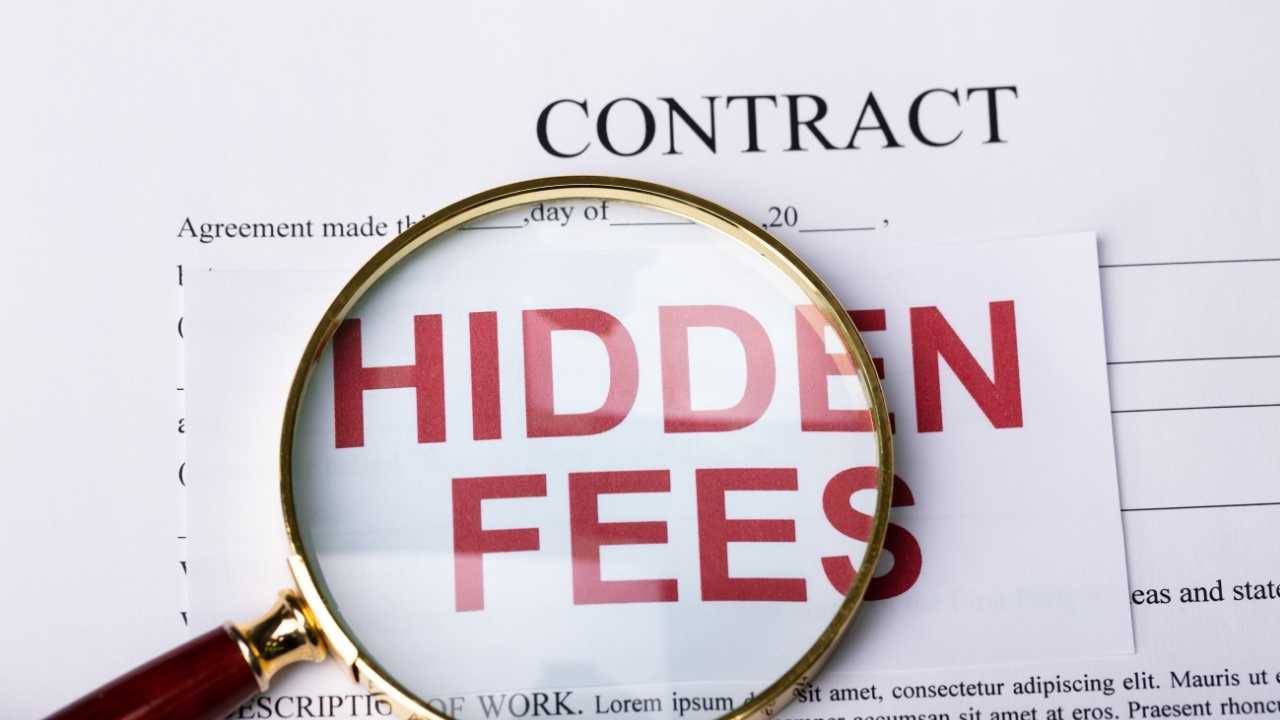Homestead exemption applications often fail due to errors. These include incomplete forms, missed deadlines, and incorrect details. Knowing these reasons can help you avoid mistakes and save on property taxes. This article will guide you on how to ensure your application is successful.
What Is a Homestead Exemption?
A homestead exemption lowers your property taxes if you live in the home. It can save you a lot of money each year, depending on your state. Each state has its own rules, so what you get varies.
Why Homestead Exemptions Matter
Property taxes can be a big burden for homeowners. A homestead exemption can reduce your taxable property value. For example, in Florida, it can cut your home’s taxable value by up to $50,000.
Who Qualifies for a Homestead Exemption?
To qualify, you must own the home and live there as your primary residence. Some states also check your income, age, or disability. Always check your state’s specific rules before applying.
Common Reasons Homestead Exemption Applications Get Denied
Many applications fail due to overlooked requirements or simple mistakes. Below are the most common reasons for denial, along with tips to avoid them.
1. Property Is Not Your Primary Residence
Most states require the home to be your primary residence. If you apply for a vacation home or rental, your application will likely be denied. For example, Texas only grants exemptions for your main home, not secondary properties.
Tip: Make sure the property you’re applying for is your main home. Provide proof like a driver’s license or voter registration matching the property address.
2. Incomplete or Incorrect Application Forms
Missing information or errors on your application can lead to rejection. Common mistakes include leaving fields blank, entering wrong ownership details, or submitting outdated forms. In 2023, Florida reported that 15% of denials were due to incomplete applications.
Tip: Double-check all forms for accuracy. Use the latest forms from your state’s tax assessor or property appraiser website.
3. Missing Application Deadlines
Every state has strict deadlines for homestead exemption applications. Missing these deadlines is a top reason for denials. For instance, in California, you must file by February 15 for the next tax year.
Tip: Check your state’s deadline and submit early. Set a calendar reminder to avoid missing the cutoff.
4. Property Ownership Issues
You must own the property to qualify for a homestead exemption. Applications are often denied if the property is in a trust, owned by a business, or not fully transferred to your name. For example, Georgia requires the applicant’s name to be on the deed.
Tip: Verify your name is on the property deed. If the property is in a trust, check with your state about trust eligibility rules.
5. Ineligibility Due to State-Specific Rules
Each state has unique eligibility requirements, like age, income, or disability status. If you don’t meet these, your application will be denied. For instance, some states offer additional exemptions for seniors over 65, but only if they meet income limits.
Tip: Research your state’s requirements on official government websites, like your county tax assessor’s page.
6. Multiple Exemption Claims
Claiming homestead exemptions on multiple properties is illegal in most states. If you’re caught applying for exemptions in two states or for two homes in one state, your application will be denied. In 2024, Texas auditors flagged 3,200 cases of duplicate exemptions.
Tip: Only apply for an exemption on your primary residence. If you move, notify the tax office to cancel any prior exemptions.
7. Failure to Provide Required Documentation
Many states need proof of where you live or own, like utility bills or a driver’s license. If you don’t have the right documents, your application might get denied. For example, in New York, you need to show you live there to get a STAR exemption.
Tip: Get all the documents you need before you apply. Look up your state’s website for a list of what you need.
8. Property Type Ineligibility
Not every property can get a homestead exemption. Mobile homes, business properties, or homes being built might not qualify. For example, California doesn’t allow exemptions for business properties.
Tip: Make sure your property type is allowed. If you’re not sure, call your local tax assessor.
9. Income or Age Restrictions Not Met
Some states have rules based on how much money you make or your age. If you make too much or are too young, you might not qualify. In Illinois, you must be 65 or older for a senior exemption.
Tip: Check if your state has income or age limits. If you qualify for a special exemption, include proof like tax returns or ID.
10. Errors in Property Valuation or Assessment
Wrong information about your property, like its size, can cause problems. If your application doesn’t match the assessor’s records, it might be rejected. This often happens when a property is renovated.
Tip: Check your property’s tax records for accuracy. If there are mistakes, contact the assessor’s office to fix them before applying.
Common Homestead Exemption Denial Reasons by State (2025)
| State | Top Denial Reason | Percentage of Denials | Source |
|---|---|---|---|
| Florida | Incomplete Applications | 15% | Florida Dept. of Revenue, 2023 |
| Texas | Multiple Exemption Claims | 10% | Texas Comptroller, 2024 |
| California | Missed Deadlines | 12% | CA Board of Equalization, 2023 |
| Georgia | Ownership Issues | 8% | GA Dept. of Revenue, 2024 |
| New York | Missing Documentation | 11% | NY Dept. of Taxation, 2023 |
Note: Data reflects the most recent available statistics as of 2025.
How to Avoid Homestead Exemption Denials
To avoid denials, start by being well-prepared and paying attention to details. Follow these steps to increase your chances of approval.
Step 1: Verify Eligibility
Make sure you meet your state’s rules. Check if you own the property, live there, and meet any age or income requirements.
Step 2: Gather Documentation
Collect all needed documents, such as proof of where you live or own, or your income. Keep copies for yourself.
Step 3: Use the Correct Form
Get the latest application form from your state or county’s official website. Don’t use old forms.
Step 4: Submit Before the Deadline
Remember your state’s filing deadline and submit early. Some states offer online submissions for your convenience.
Step 5: Double-Check Your Application
Review your application for any mistakes or missing info. Make sure everything matches your property records.
Step 6: Follow Up
After submitting, confirm your application was received. If you don’t hear back in a few weeks, contact the tax assessor’s office.
Homestead Exemption Deadlines by State (2025)
| State | Filing Deadline | Online Filing Available? | Website |
|---|---|---|---|
| Florida | March 1 | Yes | Florida Revenue |
| Texas | April 30 | Yes | Texas Comptroller |
| California | February 15 | No | CA BOE |
| Georgia | April 1 | Yes | GA Revenue |
| New York | March 1 | Yes | NY Taxation |
Note: Deadlines and online availability are subject to change. Check your state’s website for updates.
What to Do If Your Application Is Denied
If your homestead exemption is denied, don’t panic. You can often appeal or correct the issue.
Step 1: Review the Denial Notice
The denial letter will explain why your application was rejected. Read it carefully to understand the issue.
Step 2: Gather Missing Information
If the denial was due to missing documents or errors, collect the needed items or correct the mistakes.
Step 3: File an Appeal
Most states allow you to appeal a denial within a specific time frame, often 30 days. Check your state’s appeal process on the tax assessor’s website.
Step 4: Resubmit or Reapply
If the issue is fixable, resubmit your application with corrections. Some states allow reapplication for the next tax year.
Step 5: Seek Professional Help
If you’re unsure how to proceed, consult a tax professional or attorney familiar with homestead exemptions.
Why Homestead Exemptions Are Worth the Effort
A homestead exemption can save you a lot on property taxes. For example, in Texas, a $40,000 exemption on a $300,000 home could save you $800 annually, based on a 2% tax rate. Despite the application process, the savings make it worthwhile.
Additional Benefits of Homestead Exemptions
Some states offer extra protections with homestead exemptions, like caps on property tax increases. In Florida, the Save Our Homes program limits annual assessment increases to 3% for homestead properties.
Risks of Not Applying
Without a homestead exemption, you’ll pay higher property taxes. You may also miss out on protections against forced property sales in some states.
State-Specific Homestead Exemption Tips
Rules vary by state, so here are tailored tips for some of the largest states.
Florida
File by March 1 each year. Provide a Florida driver’s license and voter registration for residency proof.
Texas
Apply by April 30. Ensure your name is on the deed, and cancel any prior exemptions if you’ve moved.
California
File by February 15. Check if you qualify for the Homeowner’s Exemption or Disabled Veterans’ Exemption.
Georgia
Submit by April 1. Confirm the property is in your name and not a business or trust unless eligible.
New York
Apply for the STAR exemption by March 1. Include proof of residency and income if applying for the Enhanced STAR.
Frequently Asked Questions
Q: Can I apply for a homestead exemption on a rental property?
No, homestead exemptions are for primary homes only. Check your state’s rules for exceptions.
Q: What happens if I miss the filing deadline?
You might have to wait until next year to apply. Some states let you file late with penalties.
Q: Can I appeal a denied homestead exemption?
Yes, most states let you appeal within 30 days of denial. Check your state’s appeal process.
Q: Do all states offer homestead exemptions?
Most states do, but rules and benefits vary. Some states, like New Jersey, have limited programs.
Conclusion
Homestead exemption denials often come from simple mistakes. These include missing deadlines, incomplete forms, or not being eligible. By knowing your state’s rules, double-checking your application, and submitting on time, you can avoid these issues. Visit your state’s tax assessor website for details and start saving on property taxes today.




